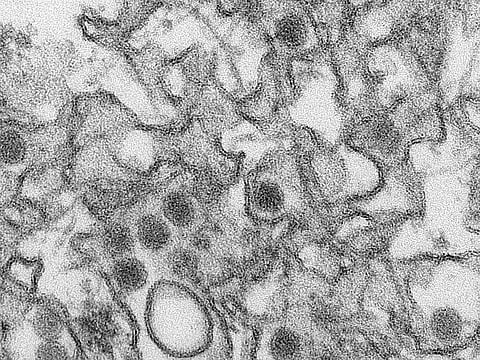Pediatricians Should Be Familiar With Zika Virus Infection
TUESDAY, March 29, 2016 (HealthDay News) -- Pediatricians should be familiar with Zika virus infection, which can affect all age groups, including children, according to a study published online March 28 in Pediatrics.
Mateusz P. Karwowski, M.D., M.P.H., from the U.S. Centers for Disease Control and Prevention in Atlanta, and colleagues reviewed information on Zika virus to assist pediatric health care providers in the evaluation and management of children with possible infection.
The researchers note that Zika virus has spread rapidly since early 2015, with local transmission identified in several U.S. territories. All age groups, including children, are susceptible to Zika virus infection. Maternal-fetal transmission of Zika virus has been reported; evidence indicates that congenital Zika virus infection correlates with microcephaly and other adverse outcomes. Two cases of perinatal transmission have been reported: One was asymptomatic, and the other involved thrombocytopenia and a rash. Similar to that in adults, Zika infection is mild in children; the long-term sequelae are mainly unknown. There is currently no vaccine to prevent Zika; treatment is supportive in nature. Prevention of mosquito bites in areas with local Zika virus transmission is the primary means of preventing infection.
"Given the possibility of limited local transmission of Zika virus in the continental United States and frequent travel from affected countries to the United States, U.S. pediatric health care providers need to be familiar with Zika virus infection," the authors write.


